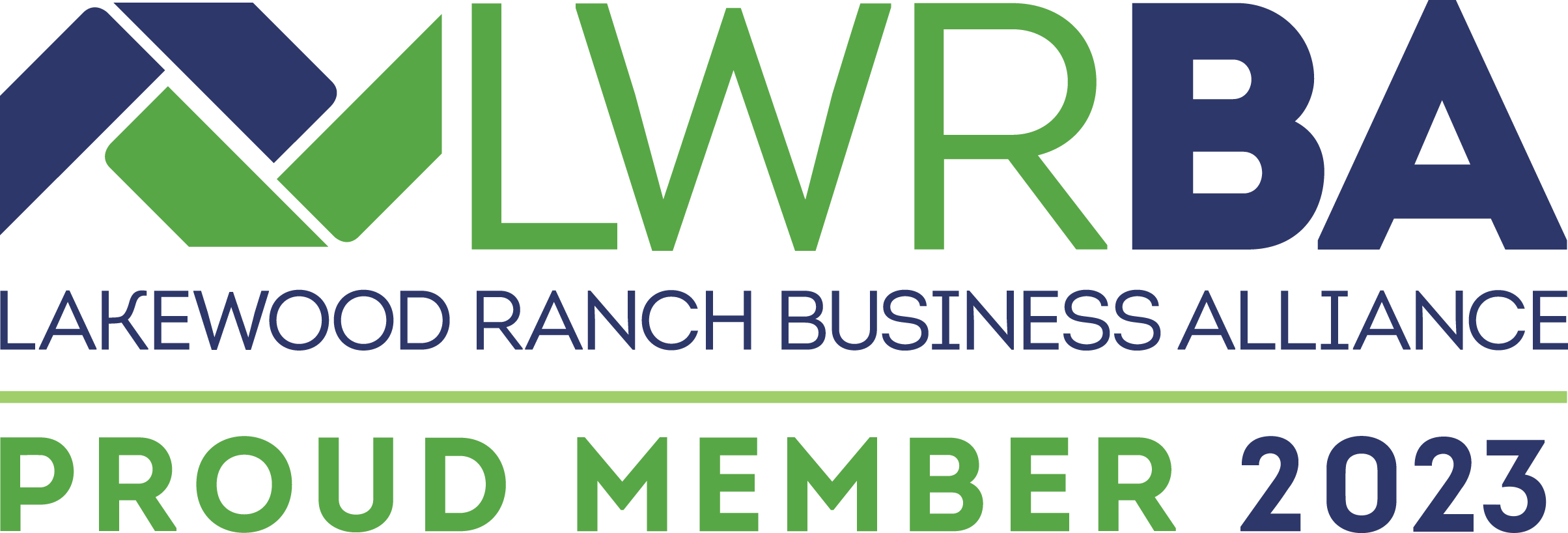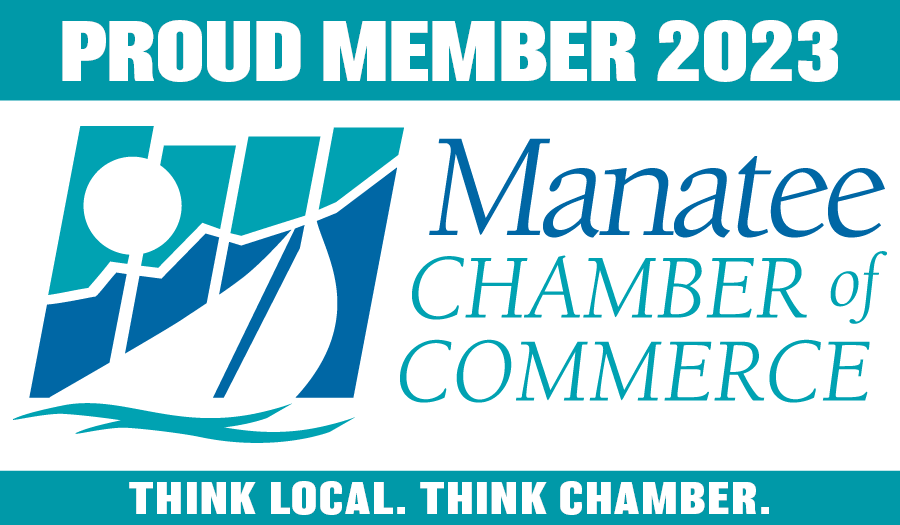Lakewood Ranch Motorcycle Accident Lawyers
With the thrill and freedom of motorcycle riding comes an increased risk of accidents. Lakewood Ranch, Florida, has seen many motorcycle accidents, each with unique circumstances and outcomes. Understanding the intricate nature of these accidents can make a big difference in prevention, response, and subsequent legal actions. Engaging the services of Lakewood Ranch motorcycle accident lawyers from Luhrsen Goldberg can significantly improve your chances of obtaining fair compensation for your injuries.
Common Causes of Motorcycle Accidents
Motorcycle accidents in Lakewood Ranch, FL and around the globe have many causes. By dissecting these root causes, riders and drivers can better understand the potential dangers and take effective preventive measures. Motorcycle accidents often occur when another driver is found to have engaged in some sort of careless driving, including:
- Failure to Yield: Another frequent cause of motorcycle accidents involves motorists who disregard right-of-way rules (e.g., turning left on a green without insuring the right of way is clear as opposed to turning left on a green arrow), particularly at intersections or when merging lanes. Despite clear traffic regulations, some drivers fail to yield the right-of-way to motorcyclists, causing hazardous situations that can easily lead to collisions.
- Distracted Driving: One of the most common reasons for motorcycle accidents in Lakewood Ranch is distracted driving. As the roads become busier, drivers are often occupied with many distractions that cause them to take their attention off the road. Inattentive motorists who are busy using their cell phones for texting or calls, adjusting the radio settings, using GPS devices, or engaging in other distracting activities can fail to notice motorcyclists sharing the road with them.
- Lane Changes: Changing lanes may seem straightforward, but when executed improperly, it can lead to serious accidents involving motorcycles. Drivers who neglect to check their blind spots or signal their intentions can inadvertently collide with a motorcyclist traveling in the lane they are moving into.
- Speeding: The dangers associated with excessive speeding are well-known, yet it remains a leading cause of motorcycle accidents. High speeds reduce the time drivers have to react, making it challenging to avoid potential collisions with motorcycles. Furthermore, the higher the speed, the greater the impact force in the event of a collision, significantly increasing the likelihood of serious injuries or fatalities.
- Collisions at Intersections: Intersections are common accident spots due to the increased complexity of traffic patterns and the necessity of accurately gauging other vehicles' speeds and distances. Riders and drivers often misjudge these factors, leading to collisions.
- Impaired Driving: Impaired driving, primarily due to alcohol or drug use, significantly contributes to accidents, including motorcycle accidents.
Navigating the Aftermath of a Motorcycle Accident: What Not To Do
In the immediate aftermath of a motorcycle accident in Lakewood Ranch, FL, or elsewhere, an injured motorcyclist is often disoriented, stressed, emotional and in pain. The actions taken (or not taken) in these critical moments can significantly affect the outcome of any future insurance claims or legal proceedings. To safeguard your rights and ensure an optimal recovery process, avoiding several key missteps is crucial.
- Admitting Fault at the Scene: In the chaotic moments following an accident, it's natural to want to apologize or express regret, which can sometimes be misconstrued as admitting fault. However, it's crucial to avoid such admissions. It's best to limit your initial interactions to check on the well-being of all parties involved and objectively report the facts of the incident.
- Neglecting Immediate Medical Attention: Even if your injuries don't seem severe immediately after an accident, seeking medical attention is critical. Some injuries, such as traumatic brain injuries or internal bleeding, may not present immediate symptoms but can become life-threatening if untreated. (Additionally, medical records provide essential evidence of the injuries sustained, and delaying treatment could give insurers or opposing attorneys a reason to argue that injuries were not as severe as claimed or unrelated to the accident.)
- Failure to Collect and Preserve Evidence: The scene of an accident provides crucial evidence that can support your claim or defense in legal proceedings. Failing to gather this evidence can significantly impair your case. Take photos or videos of the accident scene, including the vehicles involved, road conditions, traffic signs, and injuries, if possible. Collect contact information from witnesses, as their testimony might be helpful later. Preserve any physical evidence like damaged clothing or helmets.
- Not Reporting the Accident: Failing to report a motorcycle accident to law enforcement can lead to legal issues and complicate insurance claims. A police report provides an unbiased third-party account of the incident, documenting the details of the accident and often including an initial determination of fault. This report can be valuable evidence when dealing with insurance adjusters or in court.
Managing Communication with Insurance Companies
Communicating with insurance companies without legal advice can be risky. Insurance adjusters may try to get you to settle for less than what you deserve or make statements that could harm your claim. It is advisable to have a motorcycle accident attorney review any statements or settlement offers before you accept or sign anything.
Neglecting Legal Counsel
The legal intricacies of a motorcycle accident can be overwhelming for someone without legal training. Failing to consult with a motorcycle accident lawyer could result in you not fully understanding your rights or the value of your claim. An attorney can guide you through the process, represent your interests, and help ensure you receive fair compensation.
Understanding Comparative Negligence in Florida's Motorcycle Accident Cases
In Florida’s legal landscape, one key principle often comes into play during the resolution of motorcycle accident cases: comparative negligence. This doctrine provides a nuanced approach to establishing fault and liability, considering the actions of all parties involved in the accident.
Comparative Negligence: A Detailed Overview
The principle of comparative negligence, also known as comparative fault, is a legal doctrine that assigns a degree of fault to each party involved in an accident. This distribution of responsibility is typically expressed in percentages, reflecting the extent to which each party’s negligence contributed to the accident.
These percentages are critically important under Florida’s comparative negligence laws. They determine how much you, the injured party (also known as the plaintiff) can recover damages. For instance, if you are found to be 20% at fault for the accident, your recoverable damages would be reduced by that 20%. HOWEVER, beginning with changes made to Florida’s law in March 2023, injured persons found to be more than 50% at fault for a crash, are barred from recovering anything at all from the other negligent party.
Scenarios where the partial negligence of a motorcyclist may become problematic could include:
- Riding without Wearing a Helmet: While helmets are not required for motorcyclists over age 21, a motorcycle crash in which the rider suffers a head injury will almost certainly lead to comparative fault argument being asserted by the opposing party.
- Speeding and Reckless Driving: One of the most prevalent causes of motorcycle accidents is speeding. The high speeds reduce the rider's reaction time and make it challenging to control the motorcycle, increasing the likelihood of accidents. The risks escalate dramatically with reckless driving, which includes abrupt lane changes, tailgating, and failure to adhere to traffic rules.
- Lane splitting: The act of a motorcycle riding between two lanes of slowed or stopped traffic, is another significant cause of accidents. Although allowed in some areas, this practice poses risks as it reduces the space a motorcyclist has to maneuver, and drivers don't expect vehicles to pass them in slowed or stopped traffic.
- Impaired Riding: It goes without saying, that any impaired driving, whether due to alcohol or other substances, is illegal, but it also commonly leads to poor judgment and decision making, reduced reaction times and the like and not surprisingly leads to accidents.
- Poor Weather Conditions: Poor weather conditions such as rain, fog, or ice are often underestimated as a cause of motorcycle accidents. These conditions can reduce visibility, make roads slippery, and increase the difficulty of controlling the motorcycle. Riders caught unprepared in poor weather can find themselves in dangerous situations.
- Motorcycle Defects: Motorcycle defects, whether due to manufacturing faults or improper maintenance, can also lead to accidents. Issues like brake failure, tire blowouts, or engine problems can suddenly manifest, leaving the rider with little time to react and potentially causing a crash.
- Inadequate Rider Training: Lastly, inadequate rider training and experience are significant in motorcycle accidents. Novice riders may lack the necessary skills to react correctly to sudden traffic or road conditions changes, leading to mishaps. They might also need to fully understand or appreciate the importance of protective gear, increasing the severity of injuries when accidents occur.
Understanding these common causes can be a stepping stone toward implementing preventive measures. From regular motorcycle maintenance and proper rider training to adherence to traffic rules and safe riding practices, many ways exist to mitigate the risks, enhance road safety for all users, as well as reduce the likelihood that comparative fault becomes an issue. More importantly, if you have been injured in a motorcycle accident where your actions may have contributed, it is prudent to consult with an experienced motorcycle accident injury attorney to help navigate the intricacies of your facts so as to minimize the impacts of your own actions vis a vis Florida’s comparative fault laws.
How It Applies to Motorcycle Accidents
In the context of motorcycle accidents, this can substantially impact the resolution of a case. Consider a scenario where a motorcyclist is involved in an accident with a car. If the motorcyclist was speeding, but the car driver failed to signal before turning, both parties could share fault.
After reviewing the evidence, if a court determines that you were 30% responsible for the accident due to speeding and the car driver 70% at fault for not signaling, the damages awarded to you would be reduced by 30%. If on the other hand, the attribution of fault breaks down so that you are found 55% at fault, you would recover no damages whatsoever.
Economic vs. Non-Economic Damages in Motorcycle Accident Cases
In legal terminology, ‘damages’ refer to the monetary compensation a plaintiff may receive due to injury, loss, or harm from an incident like a motorcycle accident. In the context of these accidents, damages typically fall into two broad categories: economic and non-economic damages. Understanding these categories can provide deeper insight into what claimants might expect in potential compensation.
Economic Damages: The Tangible Costs
Economic damages, sometimes called ‘special damages,’ encompass the quantifiable financial burdens borne by you, the victim of a motorcycle accident. These are tangible costs directly attributable to the accident and can be precisely calculated.
- Medical Expenses: Medical expenses represent a significant part of economic damages. These can include costs for emergency room visits, hospital stays, surgeries, medication, physical therapy, rehabilitation, and any necessary medical equipment like wheelchairs or prosthetics. This category also accounts for future medical costs for your ongoing care or future surgeries.
- Lost Wages and Earning Capacity: Lost wages are another significant component of economic damages. If your injuries cause you to miss work or reduce your working hours, you can be compensated for this loss. Similarly, if the injuries are severe enough to diminish your ability to earn a living in the future, you can claim damages for loss of earning capacity.
- Property Damage: Property damage is another economic loss that can be incurred in a motorcycle accident. This includes repair or replacement costs for the motorcycle and may also cover other items damaged in the accident, such as helmets, clothing, or any personal items carried on the motorcycle.
Non-Economic Damages: The Intangible Costs
While economic damages cover tangible financial losses, non-economic damages, often called ‘general damages,’ compensate for the intangible, non-monetary losses a victim experiences due to the accident. These losses are inherently more subjective and can be more challenging to quantify. Some examples of non-economic damages include:
- Pain and Suffering: Pain and suffering damages compensate for the physical pain and discomfort endured by you due to your injuries. This can include immediate pain from the injuries and any ongoing pain or discomfort.
- Emotional Distress: Emotional distress damages recognize the psychological impact of an accident. This can include feelings of fear, anxiety, depression, or sleep loss. In severe cases, it can cover conditions such as post-traumatic stress disorder (PTSD).
- Loss of Companionship or Consortium: In cases where your injuries significantly impact your relationship with your spouse or family, they may be awarded damages for loss of companionship or consortium. This compensates for the loss of love, companionship, comfort, and affection due to the accident.
Statute of Limitations
In Florida, a statute of limitations defines the legal time frame to pursue compensation for personal injury cases, such as those involving motorcycle accidents. This law establishes a deadline for filing a lawsuit and is crucial in maintaining the fairness and reliability of evidence in a case. In March 2023, the Florida legislature shortened the applicable statute of limitations on most personal injury negligence claims occurring on or after the effective date of the law change from four to two years from the date of the accident. Within this period, the injured party, or the plaintiff, must initiate a lawsuit to claim compensation for their injuries or otherwise have settled her claim.
If a lawsuit is not filed within the statute of limitation, you generally will have lost her right to seek compensation. This consequence underscores the importance of timely action and early consultation with a competent motorcycle accident lawyer following a motorcycle accident. The attorney can guide you through the complex legal processes and ensure all necessary actions are taken within the specified timeframe.
The Benefits of Working with a Motorcycle Accident Attorney in Lakewood Ranch, FL
Motorcycle accidents can result in a complicated web of legal, medical, and insurance issues. Navigating these complexities while dealing with physical and emotional recovery can be overwhelming for many individuals. This is where the expertise of knowledgeable and experienced motorcycle accident attorneys becomes invaluable.
Deep Understanding of Comparative Negligence
In Florida, motorcycle accident cases often involve the principle of comparative negligence. This principle can be complex to navigate, as it involves the assessment of fault and liability among all parties involved in an accident. An experienced motorcycle accident lawyer can proficiently navigate these complexities, using their expertise to present compelling arguments that protect your interests and ensure the fair distribution of fault.
Accurate Assessment of Damages
Damages in a motorcycle accident case fall into economic and non-economic categories. Calculating these damages requires a nuanced understanding of various factors, ranging from medical expenses and lost wages to pain and suffering and emotional distress. A motorcycle accident attorney can accurately assess these damages, ensuring that all tangible and intangible losses are accounted for in the compensation claim.
Skilled Negotiation with Insurance Companies
Insurance companies often aim to minimize the compensation they pay out to claimants. They may employ tactics to devalue your claim or pressure you into accepting a lower settlement. An experienced motorcycle accident lawyer can effectively negotiate with insurance companies, using their skills and knowledge to counter these tactics and strive for the best possible settlement on your behalf.
Legal proceedings are governed by strict timelines known as statutes of limitations. In Florida, the statute of limitations for personal injury cases, including motorcycle accidents, is four years from the accident date. A seasoned motorcycle accident attorney can ensure that all necessary legal actions, including filing a lawsuit, are completed within this timeframe, safeguarding your right to seek compensation.
Focus on Your Recovery
While a motorcycle accident attorney handles the legal aspects of your case, you can focus on what truly matters: your recovery. The attorney will handle all legal formalities, investigations, and negotiations, giving you the peace of mind to concentrate on healing and rehabilitation.
Contact Luhrsen Goldberg for Lakewood Ranch Motorcycle Accident Lawyers
Working with Lakewood Ranch motorcycle accident lawyers from Luhrsen Goldberg provides many benefits. Our team can offer indispensable guidance, ensure your rights are protected, and advocate on your behalf, significantly enhancing your chances of obtaining the outcome you deserve. Contact us today to learn more.







